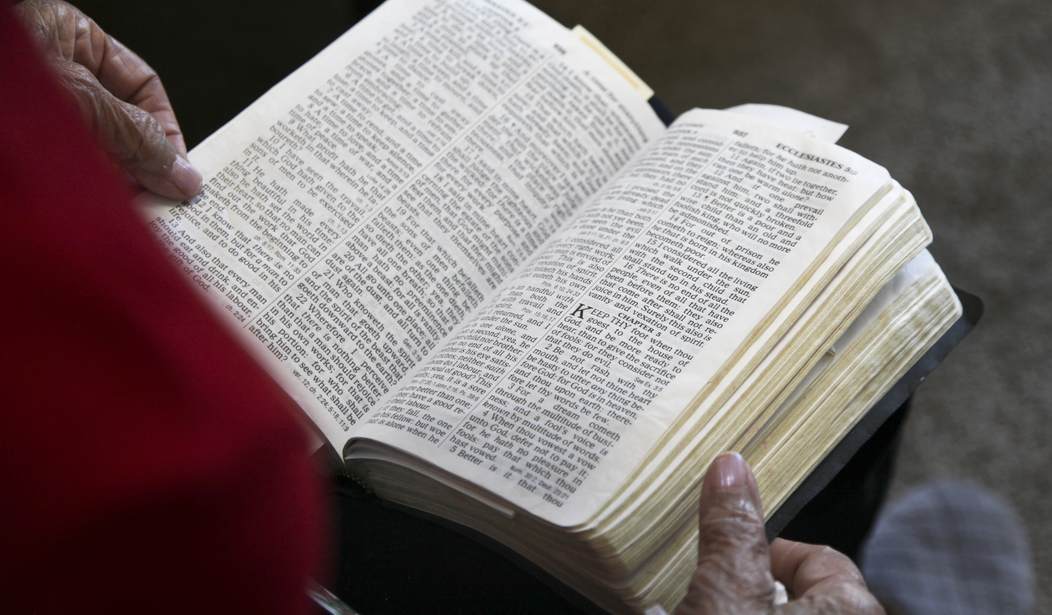It is difficult for a true follower of Jesus to dislike the early church. Yes, there could have been shortcomings, but their commitment to Christ and His message was inspirational. We read in the Scriptures that those who had more helped those who were in need.
Fast forward 2000 years, and our world is nothing like that. Barring philanthropists and good Samaritans, the tendency to be greedy and ungenerous is very common. The Christian's call to love and give remains the same, though.
We as followers of Christ are advised to seek the well-being of those around us regardless of their faith, and to help the poor among us. Today, the nature of poverty and the kind of help those people need varies across geographies. The need is stark and different, thus requiring wisdom from God and knowledge from the ground before we help.
In some parts of the world, the biggest help for the poor can be providing access to simple everyday energy infrastructure that people in the West take for granted. In such cases, the least help we Christians can do is support policies that streamline reliable energy access at an affordable cost.
As a Christian born, raised, and living in India, which rose from low to middle income over the past forty years, I've witnessed poverty all my life. The easiest solution to poverty I believed was to hand out money for people to meet their basic needs. But as important as they may be, cash handouts or temporary donation of groceries can only be part of a larger solution, and if they continue long term they actually tend to make poverty permanent.
For sustained and measurable improvement in people's economic status, there needs be a strong local and national economy that generates jobs and promotes trade. This is where countries in Africa and Asia are far behind in comparison to the economies like the U.S. and Europe. Part of the reason for their economic weakness is a weak energy sector.
I've spent my school days in India with frequent blackouts and have used candles to do my homework at night. My friends' families could not make much profit in farming as they had just a few hours of electricity a day to irrigate their lands. Even after a tremendous improvement in energy access, blackouts are still common in India. In Africa, the situation is even worse, with no electricity supply in many schools, hospitals, and villages.
The International Energy Agency estimates that 770 million people in our world do not have access to electricity<> at all. More than 500 million among them live in Africa alone. Even with a good rate of electrification, only 60% of people in Sub-Saharan Africa will have electricity access in the year 2030.
These numbers are only for those who have zero electricity. More than 2 billion people have only intermittent electricity., Sudden, unannounced blackouts/power outages are a norm in their lives.
According to WHO, "one third of the global population or 2.4 billion people worldwide still remain without access to clean cooking" fuels like electric stove or gas. They still rely on highly polluting energy sources like wood and dung that require intensive and time-consuming labor to harness.
Without electricity, oil, and gas, there is no way any developing economy can grow. Affordable and reliable energy is the fundamental driving force of any GDP. This is not a new argument from some random oil shill, but a time-tested economic growth principle that is responsible for much of the economic success in the modern-day Western civilization.
Is it not cruel to ask these billions of people to live without energy sources that we in the more developed parts of the world enjoy every day? This is why it is important for Christians to pause and weigh the importance of supporting policies that achieve long-term improvement in the economic status of the world's poorest people.
Yes, it is important to support missions that are building communities in Africa and Asia. But it is also equally, if not more, important, to support energy rights of people in those communities. Rights which allow them and their future generations to access fossil fuel resources uninhibitedly, bringing immense economic benefits akin to conquest of poverty in Western countries during the last century or so.
For billions of people in Africa and Asia, energy access is not only an issue of morality but also a matter of life and death. To have a hospital where one can get an operation, to have a home which is lighted and heated or cooled as the climate requires, and to have towns that generate trade and jobs-all of this depends on reliable and affordable energy.
Christian support for energy access should involve not just opposition to restrictive energy policies but also a pro-active attitude which openly advocates for proliferation of fossil fuels among the world's poorest.
Vijay Jayaraj is a Research Associate at the CO2 Coalition, Arlington, VA and a Contributing Writer for the Cornwall Alliance for the Stewardship of Creation. He holds a master's degree in environmental sciences from the University of East Anglia, UK and resides in India.
Fast forward 2000 years, and our world is nothing like that. Barring philanthropists and good Samaritans, the tendency to be greedy and ungenerous is very common. The Christian's call to love and give remains the same, though.
We as followers of Christ are advised to seek the well-being of those around us regardless of their faith, and to help the poor among us. Today, the nature of poverty and the kind of help those people need varies across geographies. The need is stark and different, thus requiring wisdom from God and knowledge from the ground before we help.
In some parts of the world, the biggest help for the poor can be providing access to simple everyday energy infrastructure that people in the West take for granted. In such cases, the least help we Christians can do is support policies that streamline reliable energy access at an affordable cost.
As a Christian born, raised, and living in India, which rose from low to middle income over the past forty years, I've witnessed poverty all my life. The easiest solution to poverty I believed was to hand out money for people to meet their basic needs. But as important as they may be, cash handouts or temporary donation of groceries can only be part of a larger solution, and if they continue long term they actually tend to make poverty permanent.
For sustained and measurable improvement in people's economic status, there needs be a strong local and national economy that generates jobs and promotes trade. This is where countries in Africa and Asia are far behind in comparison to the economies like the U.S. and Europe. Part of the reason for their economic weakness is a weak energy sector.
I've spent my school days in India with frequent blackouts and have used candles to do my homework at night. My friends' families could not make much profit in farming as they had just a few hours of electricity a day to irrigate their lands. Even after a tremendous improvement in energy access, blackouts are still common in India. In Africa, the situation is even worse, with no electricity supply in many schools, hospitals, and villages.
The International Energy Agency estimates that 770 million people in our world do not have access to electricity<> at all. More than 500 million among them live in Africa alone. Even with a good rate of electrification, only 60% of people in Sub-Saharan Africa will have electricity access in the year 2030.
These numbers are only for those who have zero electricity. More than 2 billion people have only intermittent electricity., Sudden, unannounced blackouts/power outages are a norm in their lives.
According to WHO, "one third of the global population or 2.4 billion people worldwide still remain without access to clean cooking" fuels like electric stove or gas. They still rely on highly polluting energy sources like wood and dung that require intensive and time-consuming labor to harness.
Without electricity, oil, and gas, there is no way any developing economy can grow. Affordable and reliable energy is the fundamental driving force of any GDP. This is not a new argument from some random oil shill, but a time-tested economic growth principle that is responsible for much of the economic success in the modern-day Western civilization.
Is it not cruel to ask these billions of people to live without energy sources that we in the more developed parts of the world enjoy every day? This is why it is important for Christians to pause and weigh the importance of supporting policies that achieve long-term improvement in the economic status of the world's poorest people.
Yes, it is important to support missions that are building communities in Africa and Asia. But it is also equally, if not more, important, to support energy rights of people in those communities. Rights which allow them and their future generations to access fossil fuel resources uninhibitedly, bringing immense economic benefits akin to conquest of poverty in Western countries during the last century or so.
For billions of people in Africa and Asia, energy access is not only an issue of morality but also a matter of life and death. To have a hospital where one can get an operation, to have a home which is lighted and heated or cooled as the climate requires, and to have towns that generate trade and jobs-all of this depends on reliable and affordable energy.
Christian support for energy access should involve not just opposition to restrictive energy policies but also a pro-active attitude which openly advocates for proliferation of fossil fuels among the world's poorest.
Vijay Jayaraj is a Research Associate at the CO2 Coalition, Arlington, VA and a Contributing Writer for the Cornwall Alliance for the Stewardship of Creation. He holds a master's degree in environmental sciences from the University of East Anglia, UK and resides in India.
Advertisement

























Join the conversation as a VIP Member